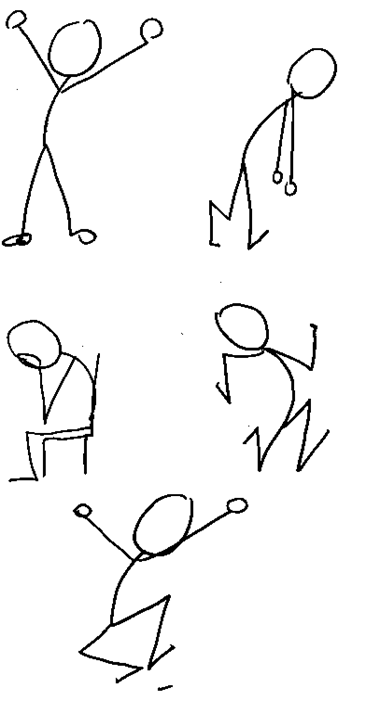I read an article the other day about skin---how the loss of hair our apelike ancestors experienced contributed directly to the development of the human mind.
The article itself was mostly about temperature, and how our increased sensitivity to it resulted in, to begin with, the multiplication of a type of sweat gland (there are three), which wicks away more easily, as opposed to the type which produces a kind of lather, as seen on the flanks of horses, and second, an enlargement of our most sensitive heat sensing organ, the mind.
Obviously, there’s a thousand more ways in which being more vulnerable to the environment in that sense should produce mental complexity. Sensations close to the skin—a cold wind, the goosebumps it occasions, the touch of another hand. All of these advanced sensory experiences surely resulted in the development of advanced sensory capability.
I am more and more convinced that our understanding of being in our body is severely lacking, in that we have abstracted ourselves from being within it. I’m not nearly the first to suggest this, but to think of it on so fundamental a scale as imagining the ways in which our evolution was aided, changed, fast-forwarded say, by the vast array of suddenly naked nerves something like unprotected skin produces is to get to the heart of it.
The animating feature of bodies—whether soul, chemical, or some sort of ghost of the machine, appearing from the unity of the things that compose bodies—are nevertheless body. Consider our legs, which emerged, perhaps, when the lack of food impelled the body to take action, the mobility to go and get it, to hunt. Consider the heart which responded to that change by evolving an efficient system to insure that that new frame had a resource system capable of sustaining it.
The brain should be, and is, no different. The soul, whatever it is, presumably is not either. It is tempting to think of the human thing, waiting in the heart of the jungle, to be unfolded into that large brain, into the mysterious course of that elongated frame. Whether this is so—whether we were, long ago, in potentia, whether other animals are as well, or could be, say the chimps that now remain in the jungles—in general, whether we are more than accident—is well beyond the pale. From all evidence, however, it emerges that a central feature of what it is to be human is to be embodied, as we are now.
We are not passengers, in this thing, the body--it has grown with us, from earliest times, and made us what we are.
Posted at Feb 28/2010 09:57PM:
Michelle: right... i mean, before we could talk, we probably mostly communicatd with and through the body

